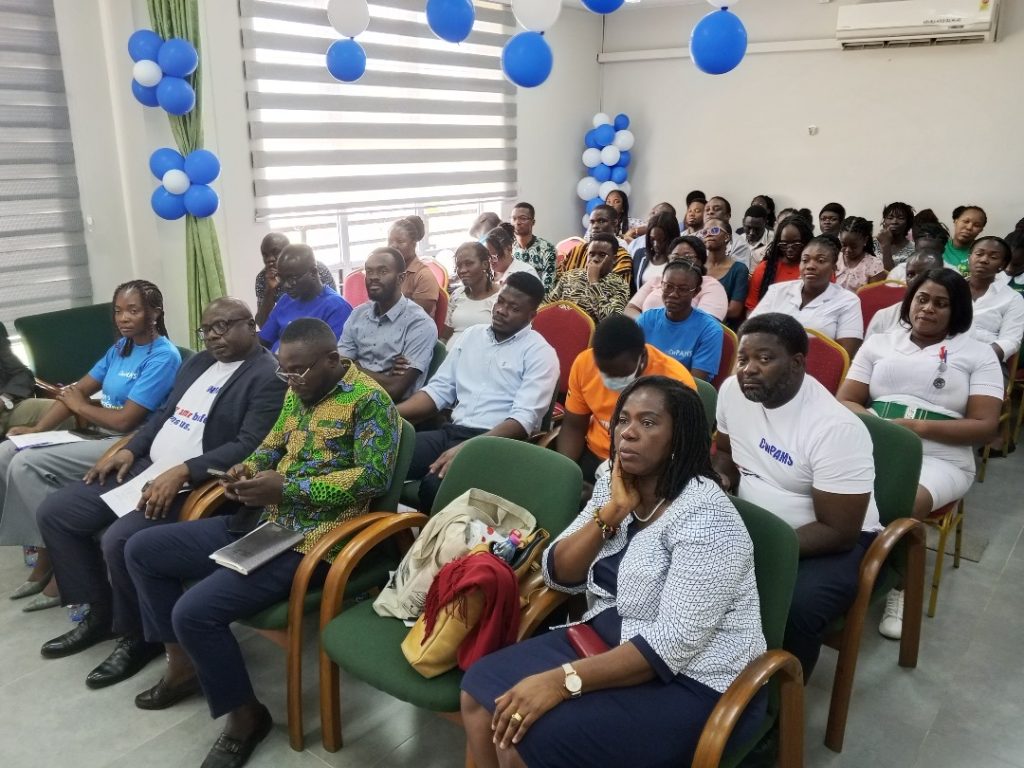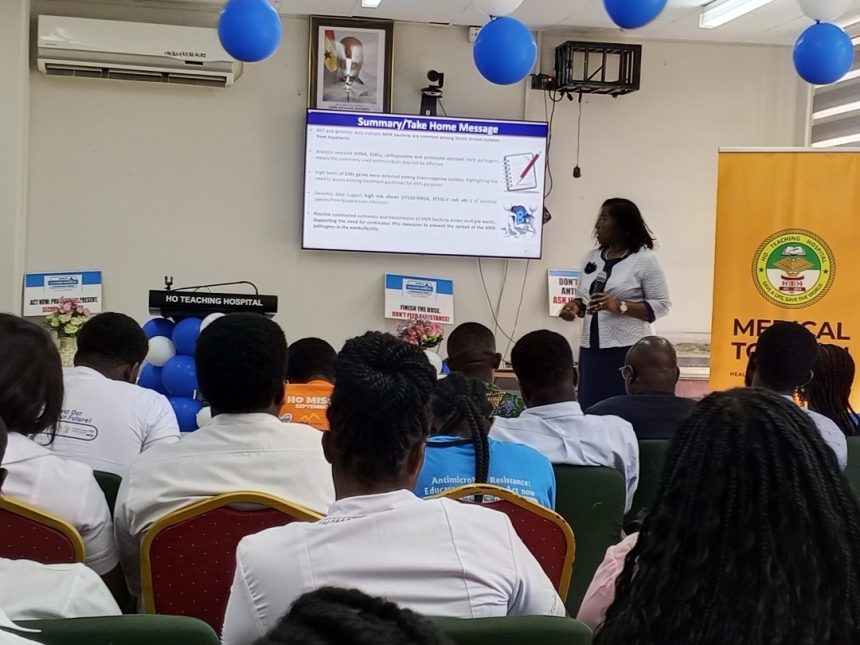The Ho Teaching Hospital and Noguchi Memorial Institute have renewed calls for urgent, coordinated action to curb rising antimicrobial resistance during the 2025 World Antibiotic Awareness Week.
Associate Professor Bevelyn Egyir of the Bacteriology Department, Noguchi Memorial Institute for Medical Research, said the global threat of antimicrobial resistance (AMR) required “strong public awareness and responsible antibiotic use across all sectors.”
She explained that resistant germs no longer respond to commonly used medicines, making infections difficult or impossible to treat.
“When antibiotics fail, patients stay longer in Hospital and are often treated with very expensive last-resort drugs,” she said, warning that the economic burden was “huge and unsustainable.”
Prof. Egyir urged Hospitals to strengthen laboratories to detect resistant organisms for appropriate treatment. She also encouraged the public to resume basic hygiene practices.
“Handwashing declined after COVID-19, yet it remains one of the simplest ways to stop resistant germs from spreading,” she said, adding that pharmacists must ensure antibiotics are prescribed only when necessary.
Madam Belinda A. Atsunyo, Chairperson of the Antimicrobial Stewardship Team at the Ho Teaching Hospital (HTH), said this year’s global theme, “Act now: protect our present, secure our future,” reflected the urgency of safeguarding existing antibiotics.
“AMR is a crisis threatening humans, animals, plants and the environment, and demands a one health collaborative approach,” she said.
She commended the six-year CwPAMS–UHAS–UCLH–HTH partnership for supporting antimicrobial stewardship, including developing antibiograms, reporting adverse drug reactions, and promoting standard treatment guidelines.
Mr Gameli Goka of the Food and Drugs Authority (FDA) highlighted ongoing efforts to curb unsafe disposal of medicines, including the nationwide “Take-Back” initiative which was piloted in 2020 in Accra.
He said improperly discarded medicines often ended up in our water bodies or end up in our homes. “We now collect unused medicines in several hospitals and pharmacies in the Volta Region to ensure safe disposal,” he added.

The FDA disclosed preliminary statistics showing that antibiotics formed the largest share of unused medicines collected between January 2024 and March 2025, followed by antihypertensives, analgesics, and antidiabetics.
Mr Goka noted that the findings raised critical questions about prescribing patterns and patient adherence, urging stakeholders to sustain public education and stewardship efforts.
Dr Emmanuel Senyo Kasu, Director of Medical Services, who represented the Chief Executive Officer (CEO) of HTH, Dr. Hintermann K. K. Mbroh, as Chairman for the event, appreciated the contributions of all participants particularly the speakers and urged every practitioner to adhere to the core lessons and basic rules to protect health facilities from future crises.
GNA






